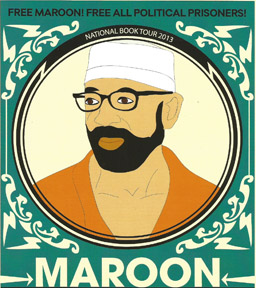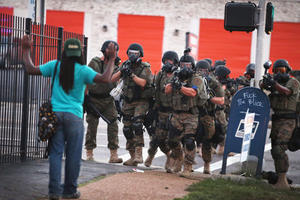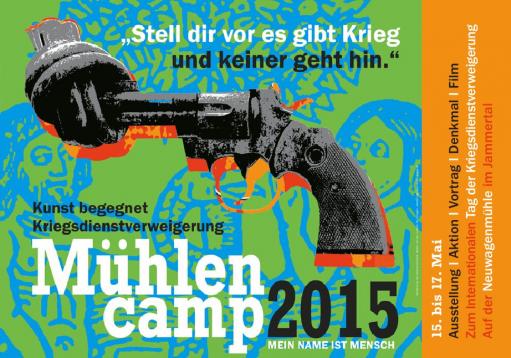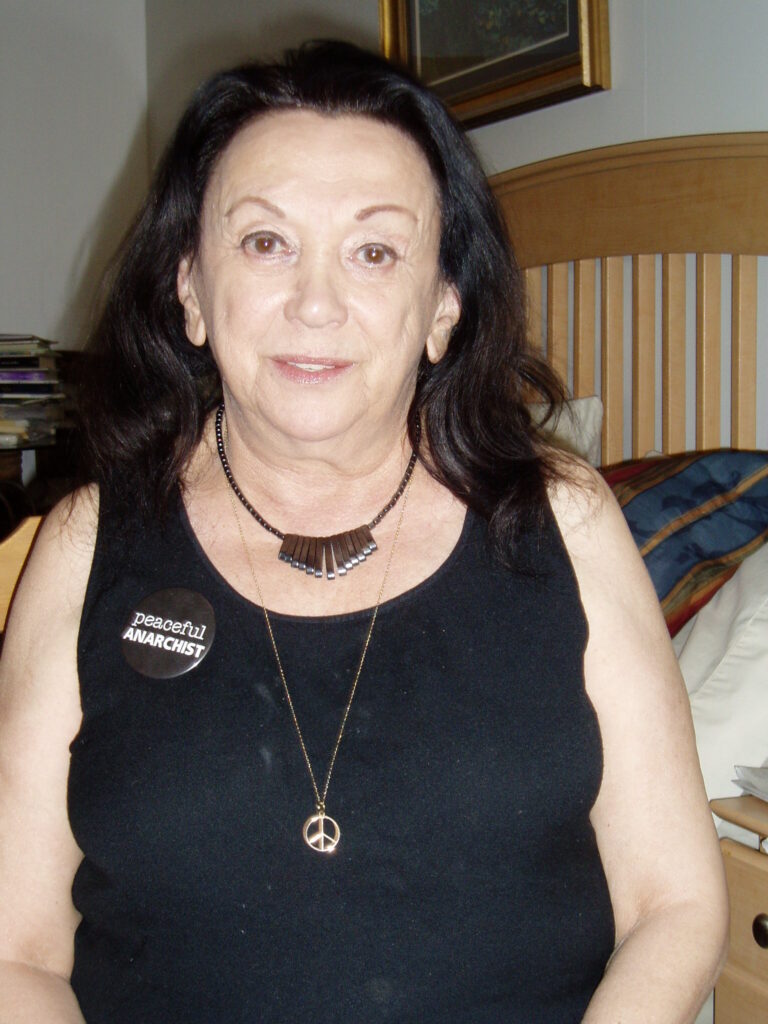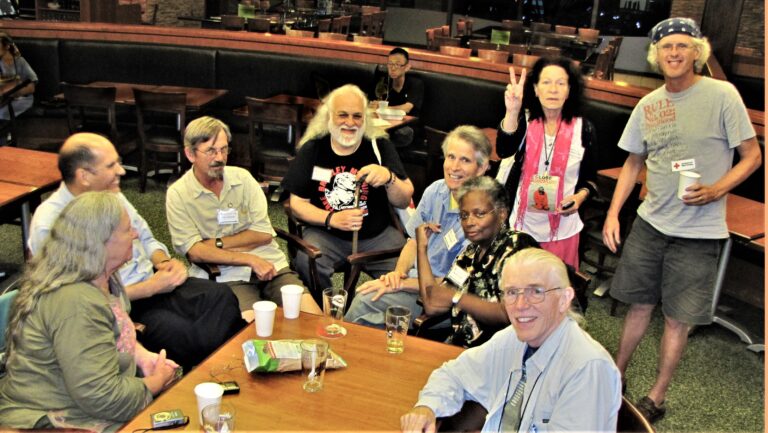Another Death in the Family: Simon Harak, 1948-2019
Fr. G. Simon Harak SJ, the exuberantly pacifist Jesuit priest and onetime WRL Disarmament Coordinator, died November 3 in Campion Health Center, Weston, Mass. He was 71 and had dealt for some six years with frontotemporal degeneration (also called frontotemporal dementia).
Simon was the kind of pacifist who sees peace and justice as inextricably bound together; he once defined nonviolence as “a commitment to work for justice so that violence is no longer necessary.” He was a co-founder of Voices in the Wilderness (now Voices for Creative Nonviolence), the U.S. campaign that defied the sanctions against Iraq; Simon led delegations to that country, delivering medicines and other necessities. He was the founding Director of Marquette University’s Center for Peacemaking, dedicated to “exploring the power of nonviolence.”
Yet he didn’t become a full-time activist until he was almost 50. Born in 1948 into a family of Lebanese immigrants in Connecticut, he grew up to pursue an academic life. He earned a B.A. from Connecticut’s Fairfield University, an M.A. in divinity from the Jesuit School of Theology at Berkeley (he had joined the Jesuits at 22), and and a second M.A. and a Ph. D. from the University of Notre Dame. From 1986 to 1999, he taught ethics at Fairfield and published three books, Aquinas and Empowerment: Classical Ethics for Ordinary Lives in 1996, Nonviolence for the Third Millennium in 2000, and Virtuous Passions:The Formation of Christian Character in 2001.
But by the later years at Fairfield, he had taken the first steps along a different path. In December of 1995, he was in Chicago, visiting his friend Kathy Kelly, the very full-time peace activist. As Kelly tells the story, one evening she and Simon were among “eight people who determined not to leave a kitchen table … until they had drafted a letter informing the U.S. State Department of their intent to break the economic sanctions against Iraq by personally delivering medicines to Iraq as often as possible.” And so was born Voices in the Wilderness.
In 1999, Simon left Fairfield to commit himself to Voices. He moved to New York City, moving into a Jesuit communal apartment on the Upper West Side (where his housemates included activist priest Daniel Berrigan). He traveled several times to Iraq on Voice’s totally illegal but open and public delegations. It was still the early days of the long war in Iraq when WRL hired him as its Disarmament Coordinator in 2003. His work in that context necessarily focused less on long-term disarmament projects than on helping to organize protests against the war, working with—and securing WRL’s prominence in—the new anti-war coalition United for Peace and Justice. Then, in 2007, Marquette University in Milwaukee lured him away with an offer to make him the founding director of its new Center for Peacemaking, which he ran until 2013. But then the advance of his cruel ailment led to his final move to the Jesuit-run health center in Massachusetts.
His death there last week had been long expected—frontotemporal degeneration always kills—but brought an outpouring of grief across the peace movement and particularly its Catholic wing. The Marquette Center for Peacemaking declared, “His teachings, spirituality, and leadership inspired students, faculty, staff and community members. … We are grateful to Simon for his time at Marquette and for sharing his lifelong witness to nonviolence with so many.” Simon’s fellow activist-priest John Dear described him as “one of the best peace activists in the nation, and a leading theologian of peace in the church.” His longtime colleague Kathy Kelly said that Simon “energized peace activism in the U.S., infusing campaigns with his unusual blend of wisdom, humor and compassion.”
Those praises, however, hardly reflect Simon’s other salient characteristic as a movement colleague: his enthusiasm, the relish for life that made him fun to be around. During the two years that we were both on the WRL staff, he and I often went out together at lunchtime, walking around lower Manhattan and discovering new, interesting, fun things to see and, often, eat, like the then-new Whole Foods salad bar at Union Square. His wicked sense of humor lightened the tone of staff meetings. He had what could be called a catholic taste in music, ranging widely from opera to rhythm and blues/soul. (His cell phone ringtone that was the aria “Nessun Dorma” from Turandot: in a 2012 Facebook post, he called the opening riff of Stevie Wonder’s “Superstition” the “best funk riff EVER!” and added, “Listen to this and be happy ALL DAY LONG!”)
Simon is survived by some of his siblings and a movement that will always carry his contributions to the cause of peace with justice. The Marquette Center for Peacemaking will dedicate its new student lounge to him on December 7.
—Judith Mahoney Pasternak
Editor, The Nonviolent Activist, 1995-2005
Share


